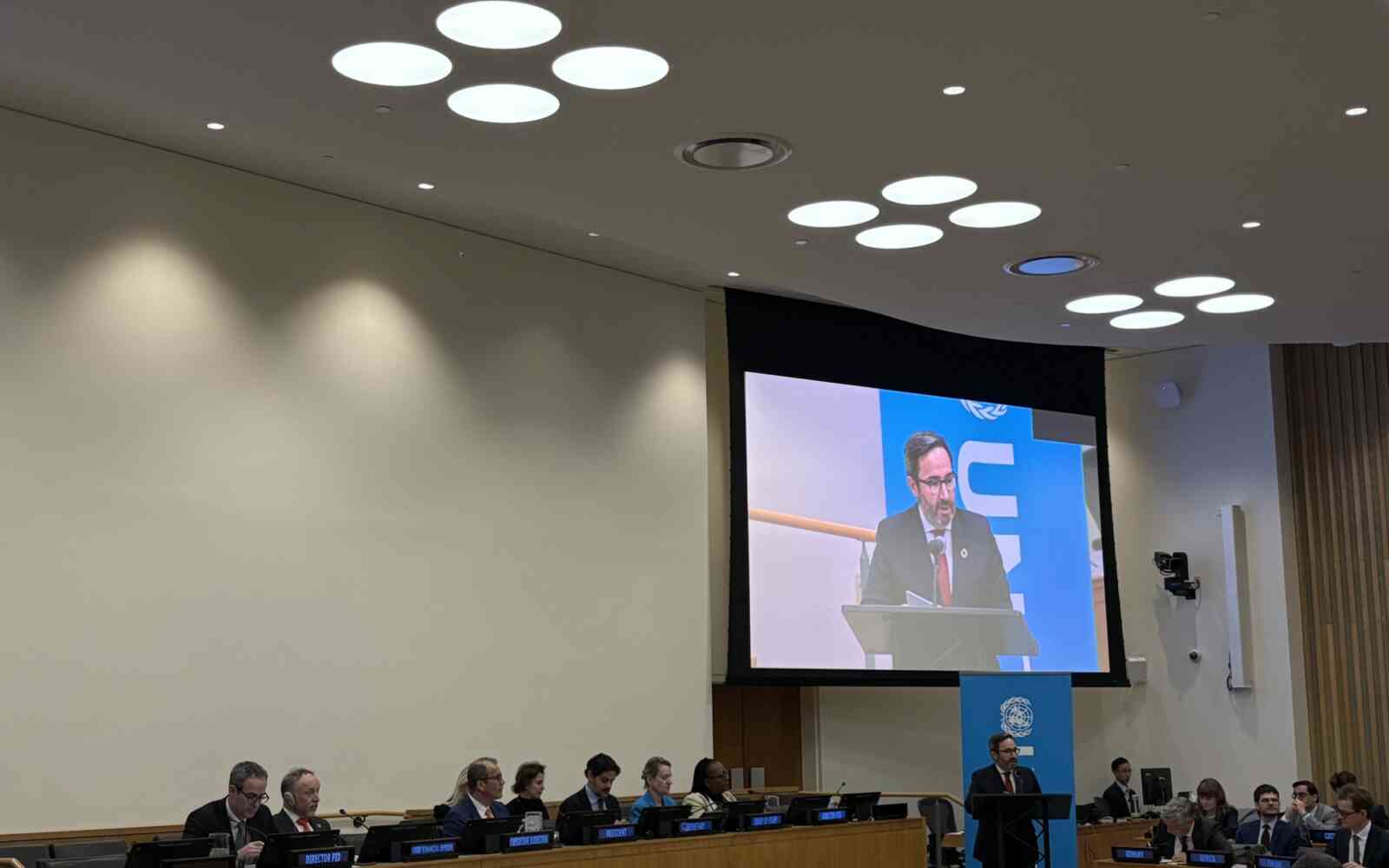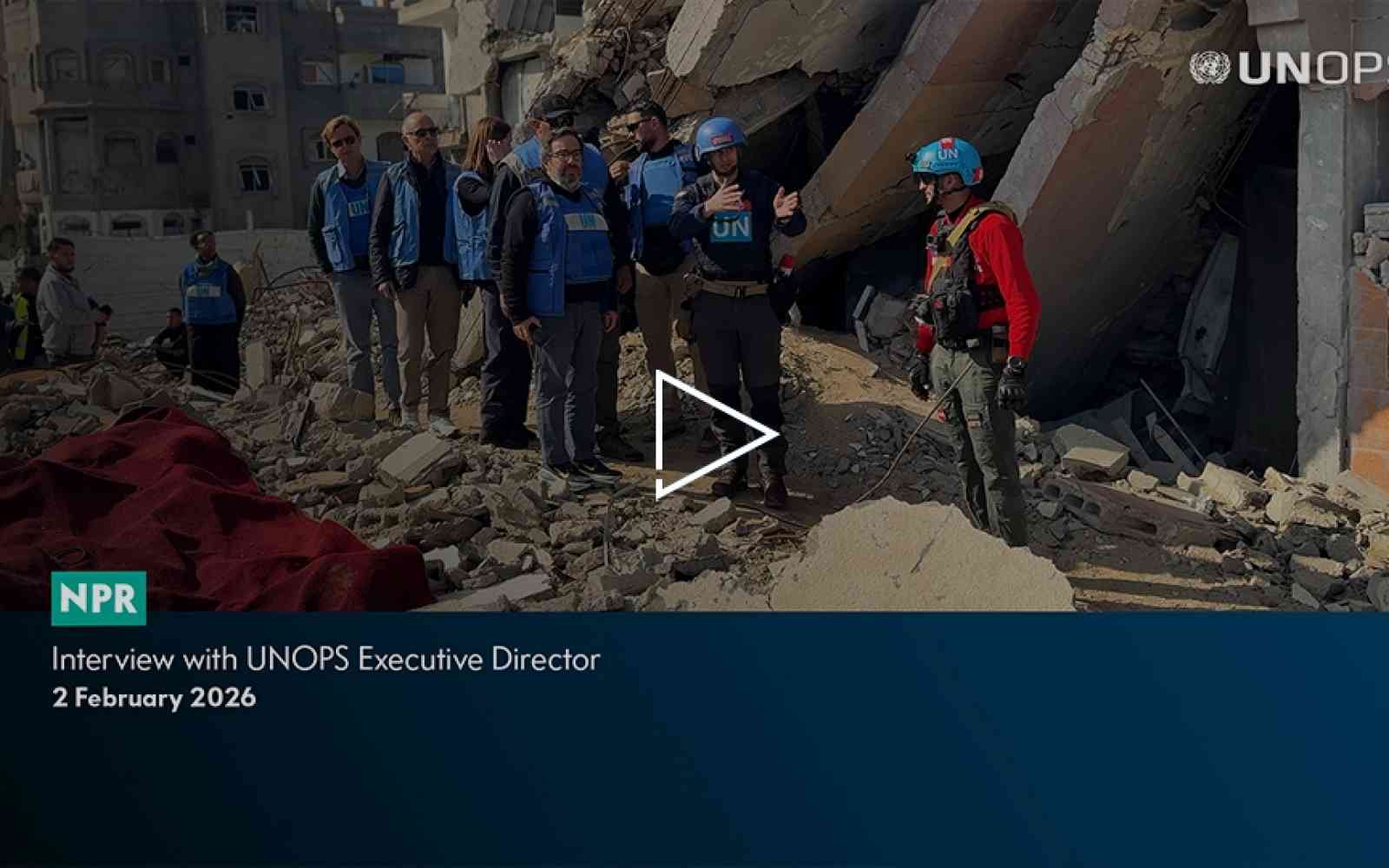The United Nations Office for Project Services (UNOPS)
Habitat III : première séance plénière
Statement by Grete Faremo, Under Secretary General and Executive Director of UNOPS, at HABITAT III - Plenary Session 1 (official opening), Quito, 17 October 2016
[Check against delivery]
Thank you, President.
Speakers before me have articulated the needs for urban planning and construction. We will become ten billion people some time in this century, and that future will be urban.
These needs must be financed. Plans and projects must be implemented. This is required by the SDGs.
UNOPS is the operational arm of UN. It is also the only self-financing entity within UN system. We combine private sector efficiency with UN values.
UNOPS is an implementer, a service provider and an advisor.
In fact we are the only UN agency with an explicit mandate to help build infrastructure. And we have experience in doing so, often in challenging environments and in fragile situations.
Often we come in when natural disaster strikes. An earthquake. A tsunami.
Future housing should be resilient to earthquakes and natural disasters. Roads should withstand the floods that come with climate change.
Equally, we will be driven by people's hopes and aspirations.
New billions of people will rightfully aspire to owning washing machines that require electricity, water and sanitation.
Whether going to school, work or markets, people need road transportation. And area planning must be considered through the lens of sustainability.
We all agree that we must avoid building the slums of tomorrow.
UNOPS can do its share by providing its expertise to help plan and implement infrastructure investments through holistic systems thinking. We have built resilience planning into all the infrastructure work we do, meaning, for example, that a school should not be turned to rubble when an earthquake strikes next, but should be able to withstand it.
The SDGs will primarily be financed by domestic resources. It will require trillions of dollars on an annual basis. Most of the external capital to invest in sustainable development will have to come from the private sector.
ODA can still play an important and catalytic role in achieving these objectives.
We must find ways to attract new and additional private capital for sustainable and more equitable development.
We believe that the UN, and UNOPS in particular, can act catalytically and work with financial institutions in de-risking projects sufficiently for the private sector to invest more in low and middle-income countries.
Used wisely, ODA can unleash significant new investment, by sharing risk and making projects bankable. UNOPS is presently developing tools to that effect.
UNOPS enjoys trust of both Governments and people in need. We are recognized for our ability to make things happen in particularly challenging situations. This is facilitated, inter alia, by our genuine impartiality, which allows us to operate in "hostile environments".
UNOPS is recognized for cost-efficiency, creative solutions, speed of action and flexible approaches.
Our successful track record is unique given the complexity of our projects and the operating environments. The level of partner satisfaction with the quality of our work is the highest in the industry.
In summary, as leader of the implementation organization in the UN with a mandate for infrastructure, I feel a deep responsibility to the new urban agenda.
With UNOPS hands-on experience in housing and resettlement and our technical expertise across infrastructure development, we are ready to support your efforts to deliver a better future.
Thank you.











